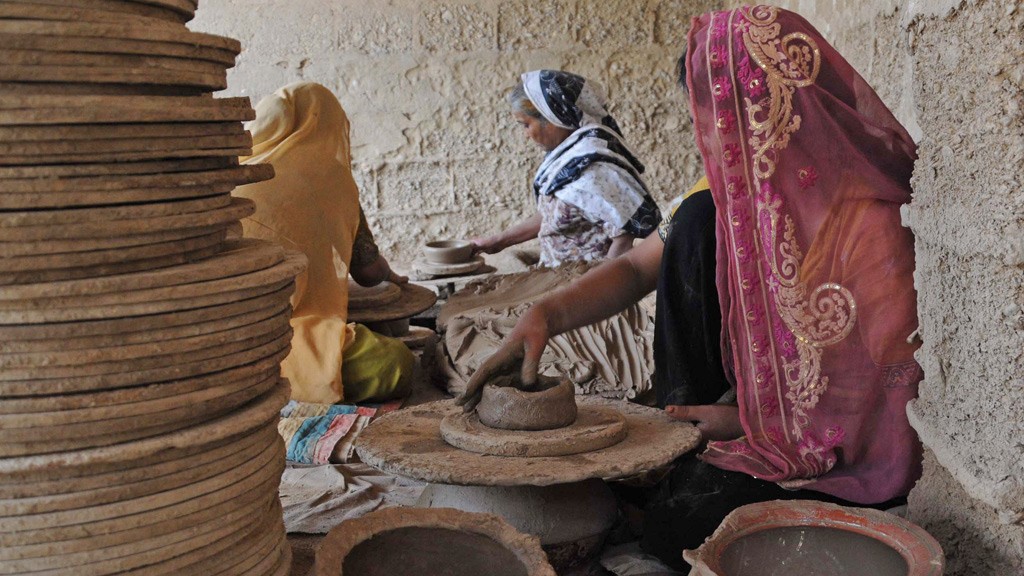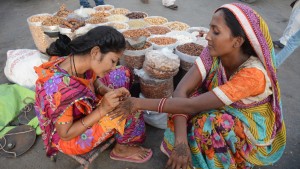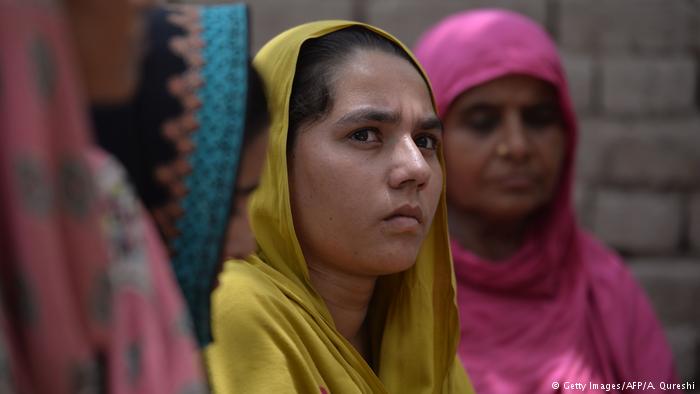Beating, and then beating about the bush
“This group should be banned! These idiot mullahs!” He remarked in a disgruntled tone, as he scrolled through the television channels, with a beer can in one hand and a TV remote control in another. She confidently nodded in agreement. I remained silent, but they heard me breathe a heavy sigh. I was the guest, he and his wife the hosts. In such awkward situations, I keep my opinions to myself. I prefer not to ruin the environment. Before the silence could suffocate us, she got up to pour me another cup of green tea. I noticed she was still slightly limping, her knee still badly sore from the gold plated Italian vase thrown at her eight days ago.
He should have been gentle. It should have been “light”.
Last week, the Council of Islamic Ideology (CII), a creation of a 1961 military government in Pakistan to advise the government on religious aspects of law and society, came under a severe backlash by social media users after its recent proposal of its version of a women’s protection bill, including a clause where they suggested that men could beat their wives “lightly” for their disobedience, dressing up improperly and turning down overtures for sexual intercourse, among other things. But it was not the CII’s proposals on treatment and rights of women that surprised me; but the reactions of Pakistani society, who took to social media for discussions, criticism, advocacy and pseudo-activism that gave me an utter shock and disbelief over their lack of knowledge and misunderstanding of, first, the Islamic way of life and then the Pakistani way of life.
While CII’s recommendations are not binding and have been rarely implemented by the government, except when it proposed a ban on alcohol in 1971, this is not the first time it puts its fingers into the mouth of controversy. The Council had been consistently pushing the Pakistani government to reduce marriageable age from 16 years to 12 for boys and nine for girls – a recommendation that was not paid any heed to. Once again, it made a fool of itself and brought Pakistani chauvinism before the world.
Men were charged up against CII on social media, women got even dangerous, creating, sharing and liking memes that suggested “lightly” kicking their husbands in the balls and “lightly” poisoning them in food; the beating was synonymised with “beating an egg” and “beating the heat”, and some even related it to BDSM moves; getting into arguments and disagreements, most of which escalated to awkward and inappropriate altercations. It looked like a social media circus with pathetic entertainment. Some social media friends were lost, some like-minded were made. As after every controversy, the nation was so clearly divided into two sections: one criticising the proposal and calling it un-Islamic and the other defending Islam.
My concern was not about how these fools were actually criticising Islam by criticising CII’s proposal, because the Council was exactly recommending how Islam orders its male followers to treat their women. In fact, I am quite impressed with the Council for using the word “light” before beating, because the Holy Quran does not. My patience was tested at the hypocrisy of our men and the helplessness of our women; the endemic pretence that our society suffers from and the ignorance they embrace in inheritance; and their failure to pick up books, study and search for facts.

Misbah, 17, takes part in warm up exercises at the first women’s boxing coaching camp in Karachi (February 19, 2016) © Reuters/A. Soomro
The truth is, irrespective of their ethnic background and financial status, 80 per cent of the women in our country have been beaten at least once in their lives – the difference is that just some of them are brave enough to admit it. In a country, where men are taught chauvinism before the English alphabets, and where women are burned to death for bearing girls, attacked with acid for turning down marriage proposals, killed for disrupting family “honour”, divorced for raising voice against domestic violence and sexually harassed on roads and inside corporate buildings, the real issue is not the “light” beating proposal, a proposal that does not even hold any significance before the government. The ailment is our state of denial and failure to call a spade a spade.
As for before I left that Tuesday night, I realised that my host’s wife was also worried about the exact wrong thing. She was heartbroken because “it was her favourite vase” – a wedding present from her sister – and how it took her an entire hour to gather the scattered pieces.
“And how much time does it take to gather the pieces of your shattered self-respect?”
“Before the broken glass pieces,” she replied.
On Wednesday morning, her husband published an online opinion piece, criticising the Council for suggesting that men could beat their wives. His words and approach were strong and powerful, sometimes almost confrontational.
Tch! Tch! He should have been gentle. It should have been “light”.
Author: Ayesha Hasan
Editor: Marjory Linardy
Ayesha Hasan is a DW-FES Fellow of Journalism and is currently pursuing a PhD in women journalists and peace journalism at the University of Wollongong, Australia.
_____
WTO RECOMMENDS
Violence against women in Pakistan often met with ‘state inaction’
Eight years into Pakistan’s democratic transition, violence against women is still endemic, a new ICG report found. The group’s Samina Ahmed talks about why biased attitudes towards women lie at the heart of the problem. (From April 9, 2016)
Empowerment, Not Violence Against Women
When we hear the phrase “women’s issues,” numerous issues and problems come to our minds and most of the problems have been prevalent for centuries. In spite of the plans and policies at national and international levels, no substantial work has been done for the elimination of these issues from women’s lives. Only superficial efforts have been made, which hardly influence the living standards of women at grass root level. (From January 8, 2015)
India does a U-turn and still fails to criminalize marital rape
A recent statement, Maneka Gandhi, India’s Women and Child Development Minister, says that marital rape cannot be applied to the Indian context. Her comments have raised many disturbing questions. (From March 24, 2016)








